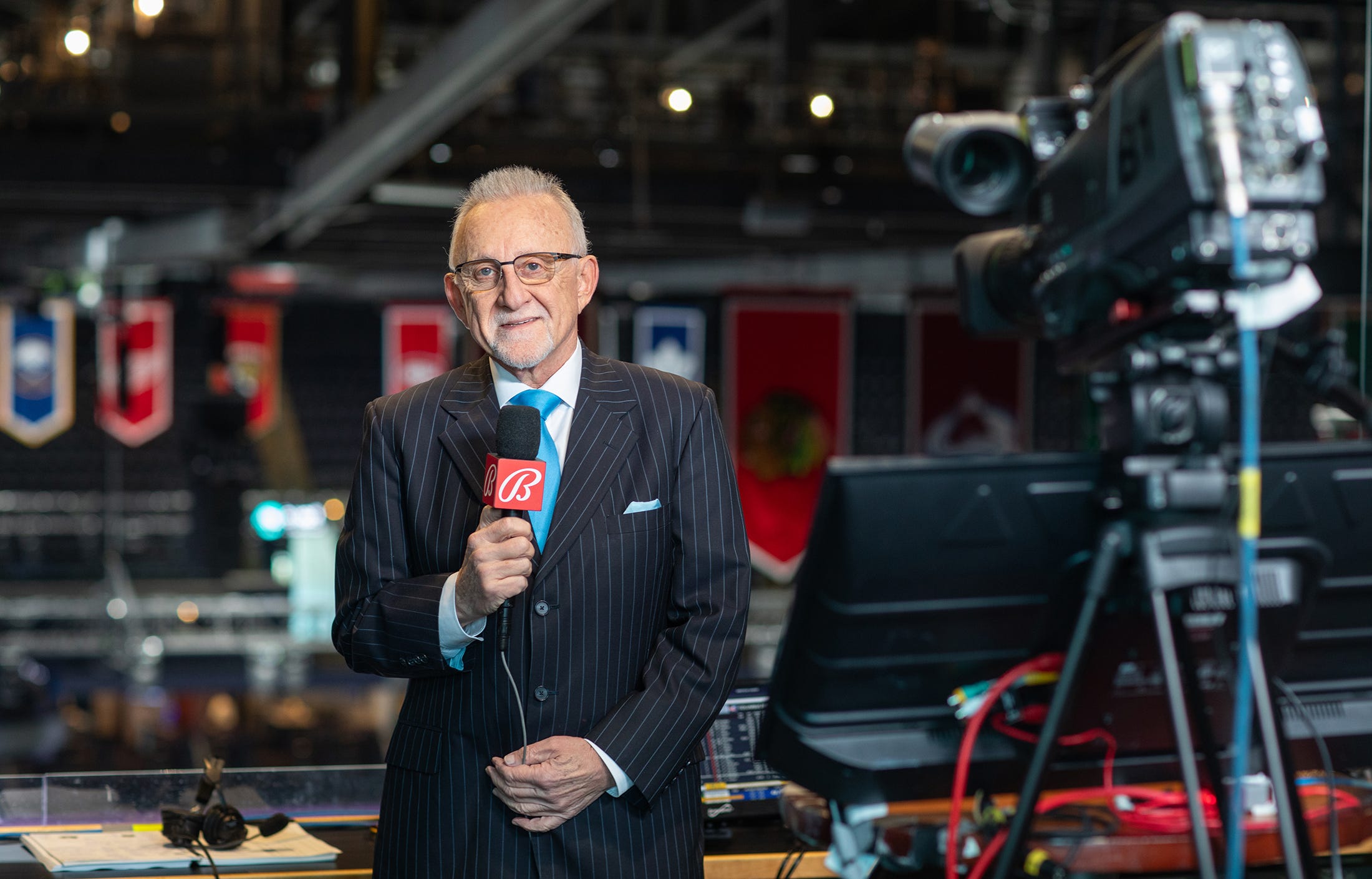Columbus Blue Jackets Announcer Jeff Rimer Signing Off After 20 Years in the Booth
As his legendary NHL broadcasting career comes to an end, former players and pals of Rimer share their favorite memories of the Blue Jackets’ gracious play-by-play man and name-dropper extraordinaire.

In today’s convoluted media landscape, the classic “voice-of-the-team” archetype is dying. But for 20 years—nearly 80 percent of the franchise’s history—fans of the Columbus Blue Jackets have had a voice of their own.
Since 2004, Jeff Rimer has been the team’s play-by-play announcer, becoming a beloved and instantly recognizable figure in the Columbus sports scene thanks to a larger-than-life personality and a legendary career that will end in April. Ahead of his retirement at the end of this season, Columbus Monthly talked to some of Rimer’s friends and colleagues about what it’s like to be around the man nicknamed “The Name-Dropper.”
Todd Sharrock, CBJ vice president of communications: It’s like a running gag; there are countless stories. I remember we were somewhere at a restaurant, and he says, “I know Michael Bublé.” We're all like, “Bulls---, Rimer. You don't know Michael Bublé.” … He called Michael Bublé, and there he was.
Jody Shelley, former player and TV color analyst: This is not fake. He knows everybody—Hall of Famers, living legends, actors, singers.
John Davidson, childhood friend and CBJ president of hockey operations: Larry King was really close with Jeff … from their days in Washington. That's another one I've heard a couple times. When the team would go to California, they’d go meet up for lunch or dinner.
Mike Ricordati, 97.1 The Fan host who added Rimer to a regular segment: We named the segment “Name Dropping with Jeff Rimer” because that's just what he does. In every conversation, he talks about, “So-and-so called me” or you'll be at a meal with him, or he'll be sitting in the studio with you, and he'll hold up his phone to show you who is calling him. And I swear sometimes he even plans it, just to impress.
Rick Nash, former player and CBJ director of player development: He’s genuine. There aren’t many guys that ask you about your wife, your kids, how your summer was and those little things. When you’re a professional athlete, the media is the media, and you have to keep your guard up and make sure you’re saying the right things. But Jeff was never searching; he was never digging; he was never prodding at getting the story. It was just him being a friend.
Sharrock: One of my favorite baseball players as a kid was Gary Carter, Hall of Fame catcher. Jeff was a very good friend of Gary's. It was 2005 or 2006, and we're on the bus heading back from morning skate. There weren’t too many people on the bus, and I hear Jeff sitting behind me … and then I hear my name, and he taps me on the shoulder and says, “Hey, there’s somebody on the phone here who wants to talk to you.”
He hands me the phone, and it’s Gary Carter. I spent three or four minutes talking to one of my boyhood sports heroes, and it was like I'd known him forever. … A week or two later, Jeff brings me a baseball signed with a message from Gary Carter. He didn't need to do that. It's one of my most prized sports possessions and a terrific memory that I'll always have. I owe that to Rims.
Shelley: When I got into this business, someone pointed out to me that it's comforting to have consistency on local broadcasts because you know it's a trusted voice. It gives you that feeling when you sit down that you're watching your team and your sport. I hadn’t really thought about that. But then, when I thought of my childhood, I can tell you the broadcasters that made my Saturday nights in Canada just through their voice, who made me feel like I was exactly where I should be, doing exactly what I should be doing.
Davidson: [Players and coaches] all come and go, but the broadcasters are still there. … A young person starts listening when he's 7, 8, 9 years old, and the next thing you know, they're 19, and they're 29, and they're still listening to the same voice. It's fabulous.
Shelley: Times change and new people come in, but we're lucky to have had a guy that brings his professionalism, his voice, his attitude, his knowledge, his name-dropping to our broadcast.
This story is from the April 2024 issue of Columbus Monthly.